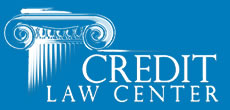The name is frightening. As it should be. The practice of trying to collect on Zombie Mortgages can be just as frightening. So, what is a Zombie Mortgage or a Zombie debt? Well, it’s debt that is past the statute of limitations and cannot be used as weapon to bring a consumer to court to collect. In a press release this week, the Consumer Financial Protection Bureau (CFPB) made monitoring the practices of debt collectors trying deceitful measures to try and collect on these outstanding debts a larger priority. They have seen an uptick in illegal practices such as threatening foreclosures on homeowners whose current mortgage is paid within the terms of their Mortgage Loan agreement and threatening litigation on time-barred debt.
Our Attorneys here at Credit Law Center fight these types of illegal practices on a daily basis. It’s very common for third-party debt collectors to step over the lines of the Fair Debt Collections Practices Act. We aren’t just a credit repair organization. We are a Law Firm that specializes in credit repair and consumer rights. Take a few moments to read the full press release from the CFPB on Zombie Mortgages. And remember, this “Zombie” applies to all debts. Once a debt is past the statute of limitations, you cannot not be sued for repayment. However, a debt collector is well within their right to try and collect that debt. They just have to adhere to the rules of FDCPA while trying to collect. If you feel you are being harassed by debt collectors, please reach out to us. We can help.
FOR IMMEDIATE RELEASE:April 26, 2023
CFPB Issues Guidance to Protect Homeowners from Illegal Collection Tactics on Zombie Mortgages
It is illegal for debt collectors to sue or threaten to sue to collect debts past the statute of limitations
WASHINGTON, D.C. — Today, the Consumer Financial Protection Bureau (CFPB) issued guidance on debt collectors, covered by the Fair Debt Collection Practices Act, threatening to foreclose on homes with mortgages past the statute of limitations. The advisory opinion clarifies that a covered debt collector who brings or threatens to bring a state court foreclosure action to collect a time-barred mortgage debt may violate the Fair Debt Collection Practices Act and its implementing regulation. A time-barred debt is one whose statute of limitations has expired. The CFPB is issuing today’s advisory opinion in light of a series of actions by debt collectors attempting to foreclose on silent second mortgages, also known as zombie mortgages, that consumers thought were satisfied long ago and that may be unenforceable in court.
“Some debt collectors, who sat silent for a decade, are now pursuing homeowners on zombie mortgages inflated with interest and fees,” said CFPB Director Rohit Chopra. “We are making clear that threatening to sue to collect on expired zombie mortgage debt is illegal.”
Leading up to the 2008 financial crisis, many lenders relied on predatory practices to lock homebuyers into mortgages they could not repay. In the case of today’s advisory opinion, the CFPB is focusing on “piggyback” mortgages. Generally, this piggyback mortgage product, known as an 80/20 loan, involved a first lien loan for 80% of the value of the home and a second lien loan for the remaining 20% of the home’s valuation.
By and large, lenders did not pursue homeowners on second mortgages, instead selling off these mortgages to debt collectors for pennies on the dollar. Now, over a decade later, and often without any intervening communication with homeowners who were able to save their homes, some of these debt collectors are demanding the mortgage balance, interest, and fees, and threatening foreclosures on families who do not or cannot pay.
Debt collectors now attempting to collect on these zombie second mortgages may be in violation of the Fair Debt Collection Practices Act. The CFPB is issuing this advisory opinion to remind covered debt collectors that:
- The Fair Debt Collection Practices Act and its implementing Regulation F prohibit a debt collector from suing or threatening to sue to collect a time-barred debt.
- The prohibition applies even if the debt collector does not know that the debt is time barred. Accordingly, any debt collector who is covered under the Fair Debt Collection Practices Act and who brings or threatens to bring a state court foreclosure action to collect a time-barred mortgage debt may violate the law.
The Fair Debt Collection Practices Act and its implementing Regulation F govern the conduct of covered debt collectors when they collect debt. Many individuals and entities that seek to collect defaulted mortgage loans, and many of the attorneys that bring foreclosure actions on their behalf, are Fair Debt Collection Practices Act debt collectors.
Along with private plaintiffs, the CFPB and state attorneys general have the authority in appropriate circumstances to take action against institutions and individuals violating the Fair Debt Collection Practices Act and Regulation F. The CFPB will be monitoring the debt collection market for violations related to time-barred mortgages as well as to time-barred non-mortgage debt.

